
-
 86-21-63895588
86-21-63895588
-
 No.1, Lane 600, Nanchezhan Road, Huangpu District, Shanghai 200011
No.1, Lane 600, Nanchezhan Road, Huangpu District, Shanghai 200011
Release time:2019-05-05
On April 25th 2019, the “Fudan Financial Review Hall of Wisdom” successfully held a themed forum entitled “Promoting Mass Entrepreneurship and Innovation and Empowering Steady and Further Economic Development” on the FISF Huangpu Campus. The forum was jointly hosted by FISF, Fudan Financial Review, China Citic Press and Y-CITY Global Innovation College.
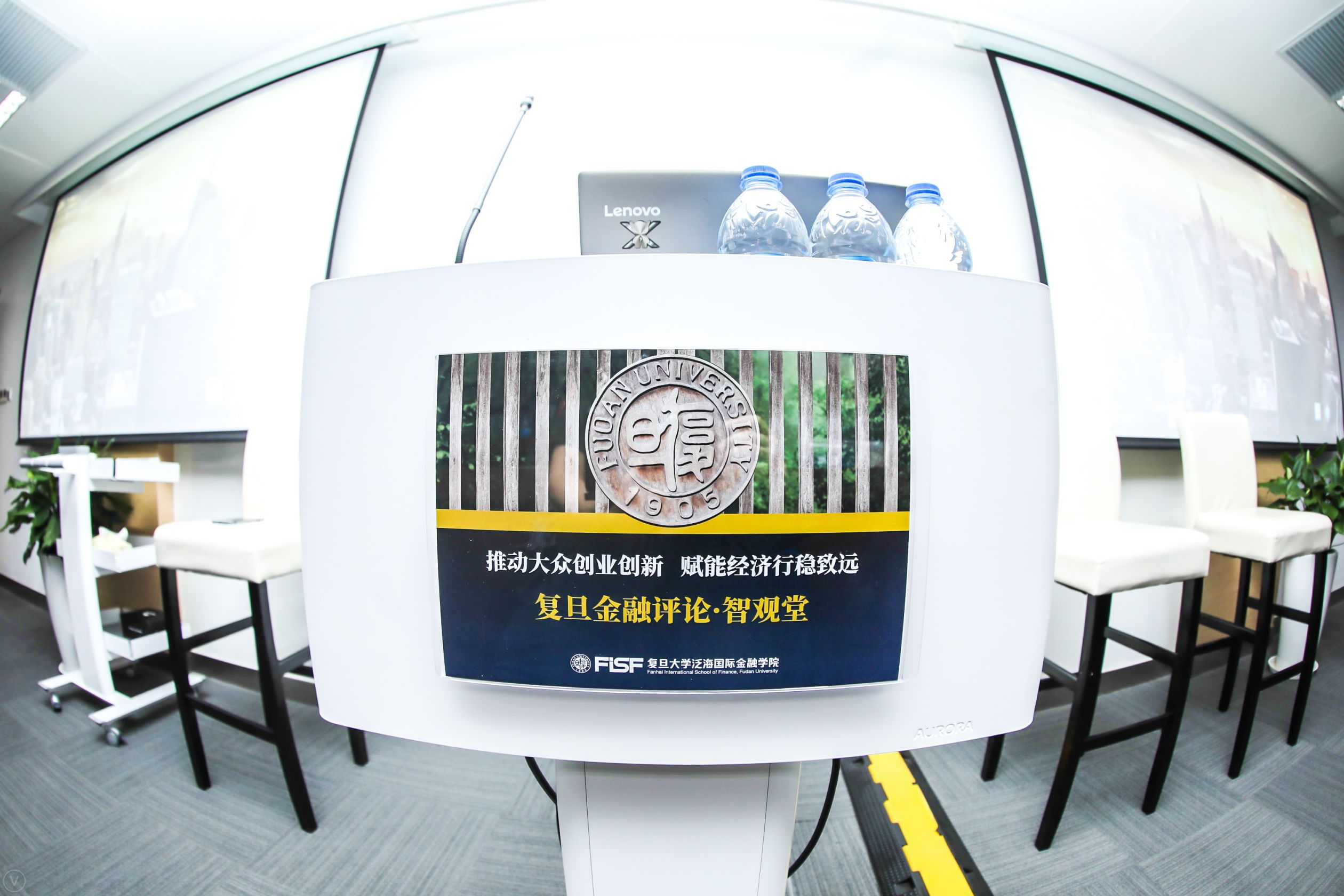
▲First Showing of “Fudan Financial Review·Hall of Wisdom”
The forum invited special guest, John Chisholm, Board Member of MIT, Renowned Venture Investor in US Silicon Valley, MBA from Harvard Business School and Senior International Partner of Y-CITY; Chi Xiaobin, Entrepreneurial Mentor of Shanghai Intel Robot Innovation Center and Independent Director of Mosun; and Zhang Yi, Founder and Chief Executive Officer of Zhangmen, to look into global economic development trends, discuss tendencies of hot industries, provide perspective on the future of the venture capital industry, and encourage global economic innovation and upgrading.
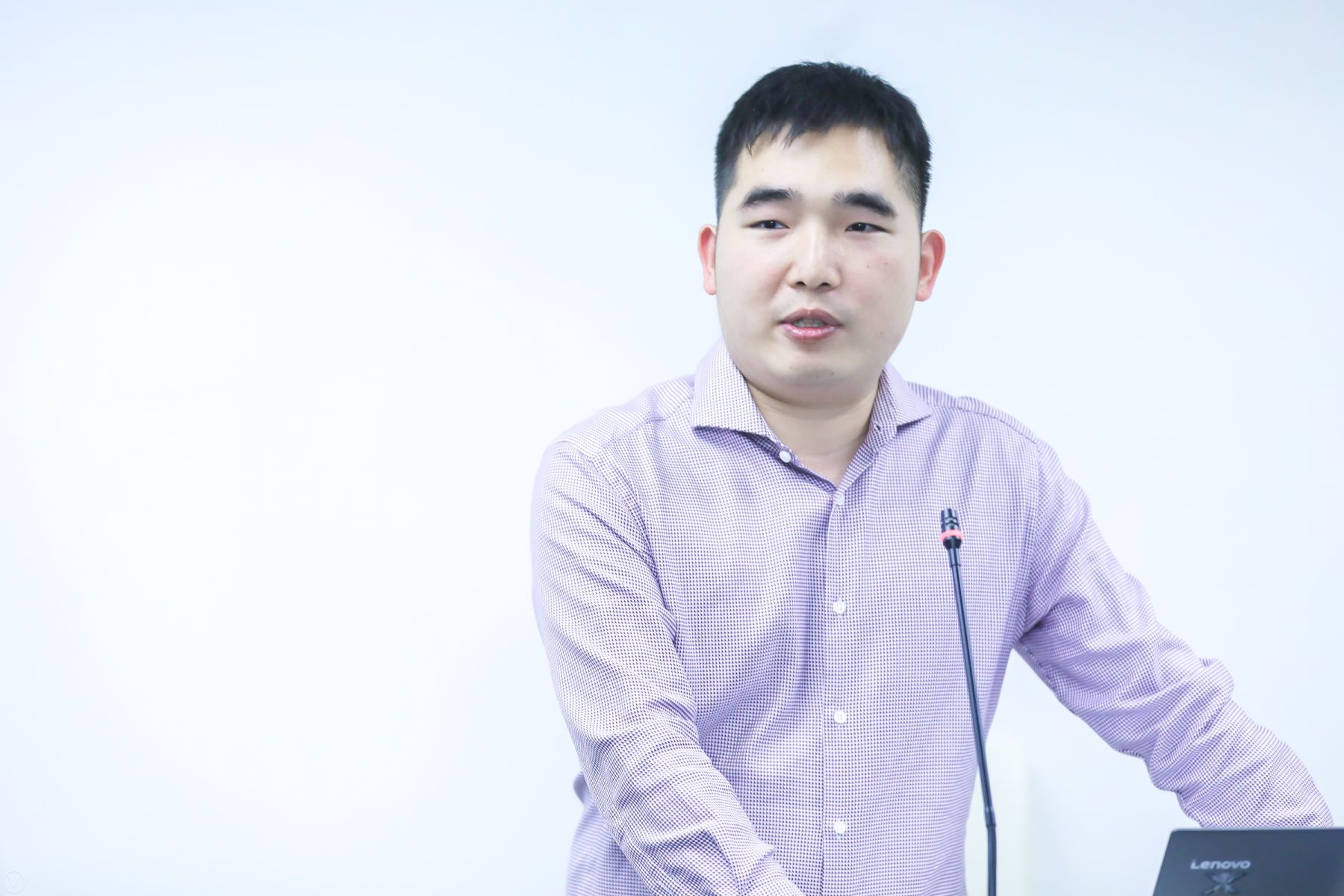
▲Gao Huasheng, Associate Dean of Scientific Research at FISF and Professor of Finance
Gao Huasheng, Associate Dean of Scientific Research at FISF and Professor of Finance, hosted the forum. According to the professor, Fudan Financial Review (published by Fudan University and jointly organized by FISF and SOE (School of Economics)) is Fudan’s leading journal, with over 100 years of cultural insight of Fudan. Its mission has always been to further the subject of financial economics, and its ambitious creative team continually strives to “explore practical innovation and lead social transformation”. As an offline brand released by Fudan Financial Review, the “Fudan Financial Review Hall of Wisdom” will soon hold offline activities at occasional intervals and invite experts and masters to share their wisdom and insights.
Experience Sharing of “Failures” and “Successes” in Entrepreneurship. When is the best time to carry out venture financing?
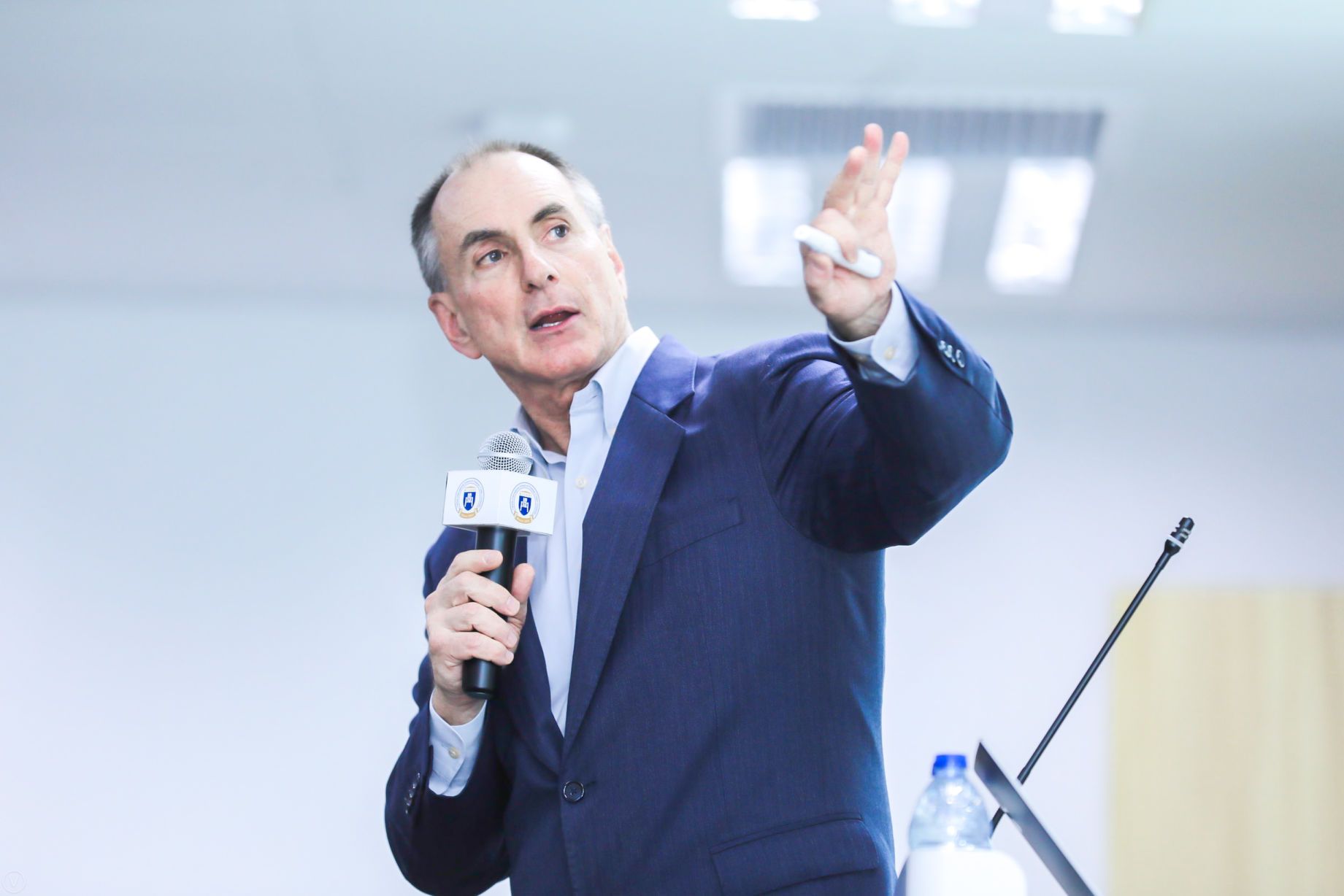
▲John Chisholm, Board Member of MIT and Renowned Venture Investor in US Silicon Valley
At the forum, John Chisholm interpreted the “‘failures’ and ‘successes’ during the 10 steps of entrepreneurship” based on his own experience. He concluded that entrepreneurship is like climbing a mountain, a venture in which passion and perseverance are indispensable. “Passion keeps an entrepreneur curious enough to solve problems, and perseverance helps them gain an enduring power to make breakthroughs. With both attributes, a positive feedback loop is formed.”
He added that once entrepreneurs have identified what makes them passionate, they should immediately match their customer’s demands with their company’s resources in that field. Additionally, “new skills and technologies are the most beneficial to innovation,” he suggested. Entrepreneurs need to get in touch with new technologies and reflect on how to combine such new technologies with various traditional technologies in order to satisfy customer demands. “It’s better to do it differently than to necessarily do it better. With different methods and technologies, you can find the best solution in some sub-segments and have enough time and space to grow up.”
As for when to engage in financial matters, John Chisholm recommended entrepreneurs to wait to seek funds before being fully prepared; otherwise, they would only leave bad impressions on their investors which could see their negotiating power decrease. “When is the best time for financing? I suggest two options—when the risk for investors falls largely or when the profitability rises significantly.”
Discuss Mass Entrepreneurship and Innovation. How to determine an entrepreneurship cycle?
In a roundtable conversation, Professor Gao Huasheng spoke with John Chisholm, Chi Xiaobin, Entrepreneurial Mentor of Shanghai Intel Robot Innovation Center and Independent Director of Mosun, and Zhang Yi, Founder and Chief Executive Officer of Zhangmen, to explore mass entrepreneurship and innovation.
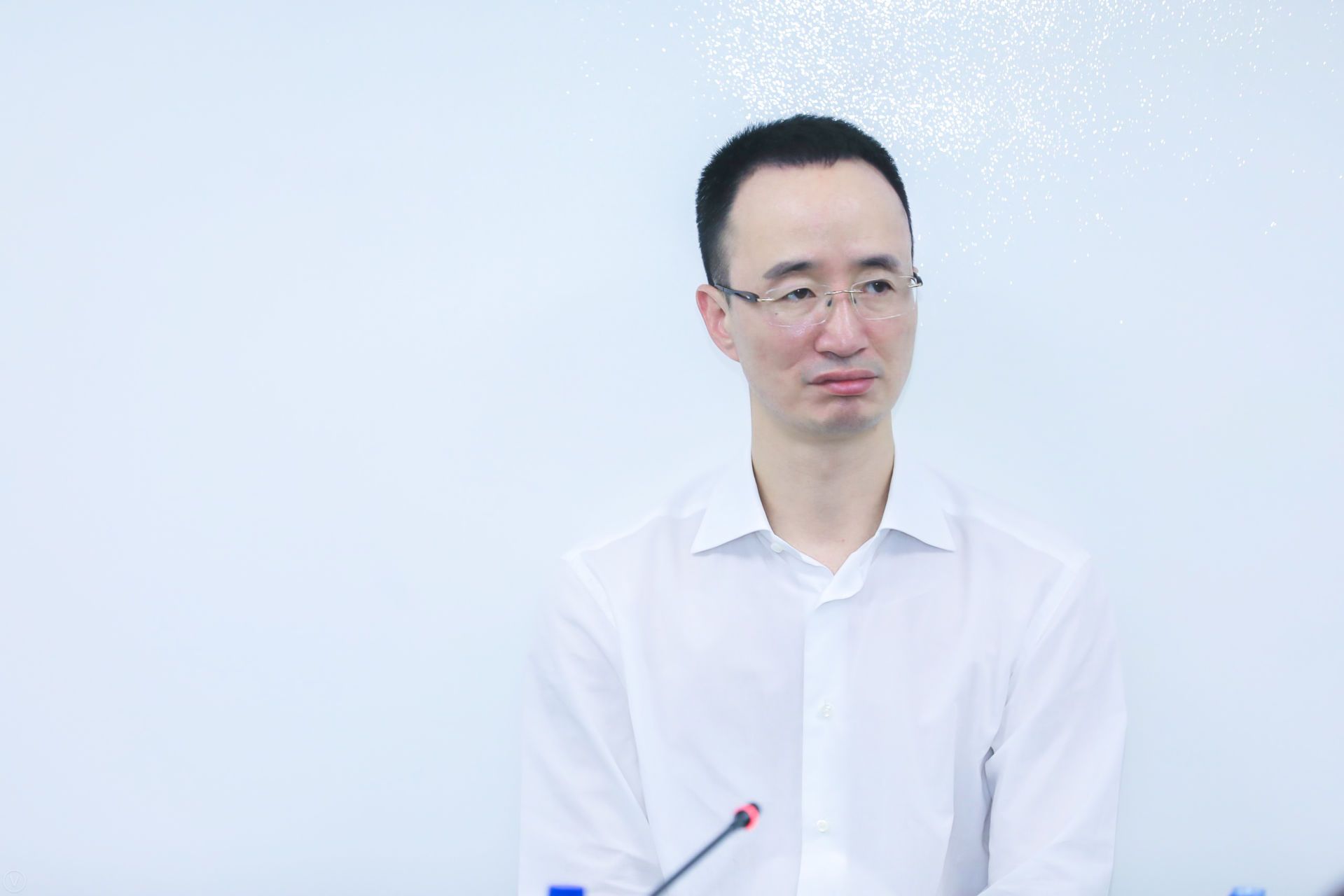
▲Chi Xiaobin, Entrepreneurial Mentor of Shanghai Intel Robot Innovation Center
and Independent Director of Mosun
Speaking about the current entrepreneurial environment, Chi Xiaobin made the argument that methodology truly exists in entrepreneurship. Compared with the US, which advocates originality, the market environment in China is slightly inferior. In China, original products are replicated as soon as they come out, so Chinese entrepreneurs need to focus on diversified development, producing diversified products while trying to avoid being squatted by copycats. This common phenomenon of squatting is a hit to the bottom line of businesses, constituting a harsh environment for today’s entrepreneurs.
“The purpose of education is, frankly, to teach knowledge and educate people,” said Chi Xiaobin, when asked about the roles that universities should play in entrepreneurship. Education allows entrepreneurs to pursue their passion, to endeavor towards perfection, by providing them the tools they need to build their enterprise with practical knowledge and, thus, confidence.
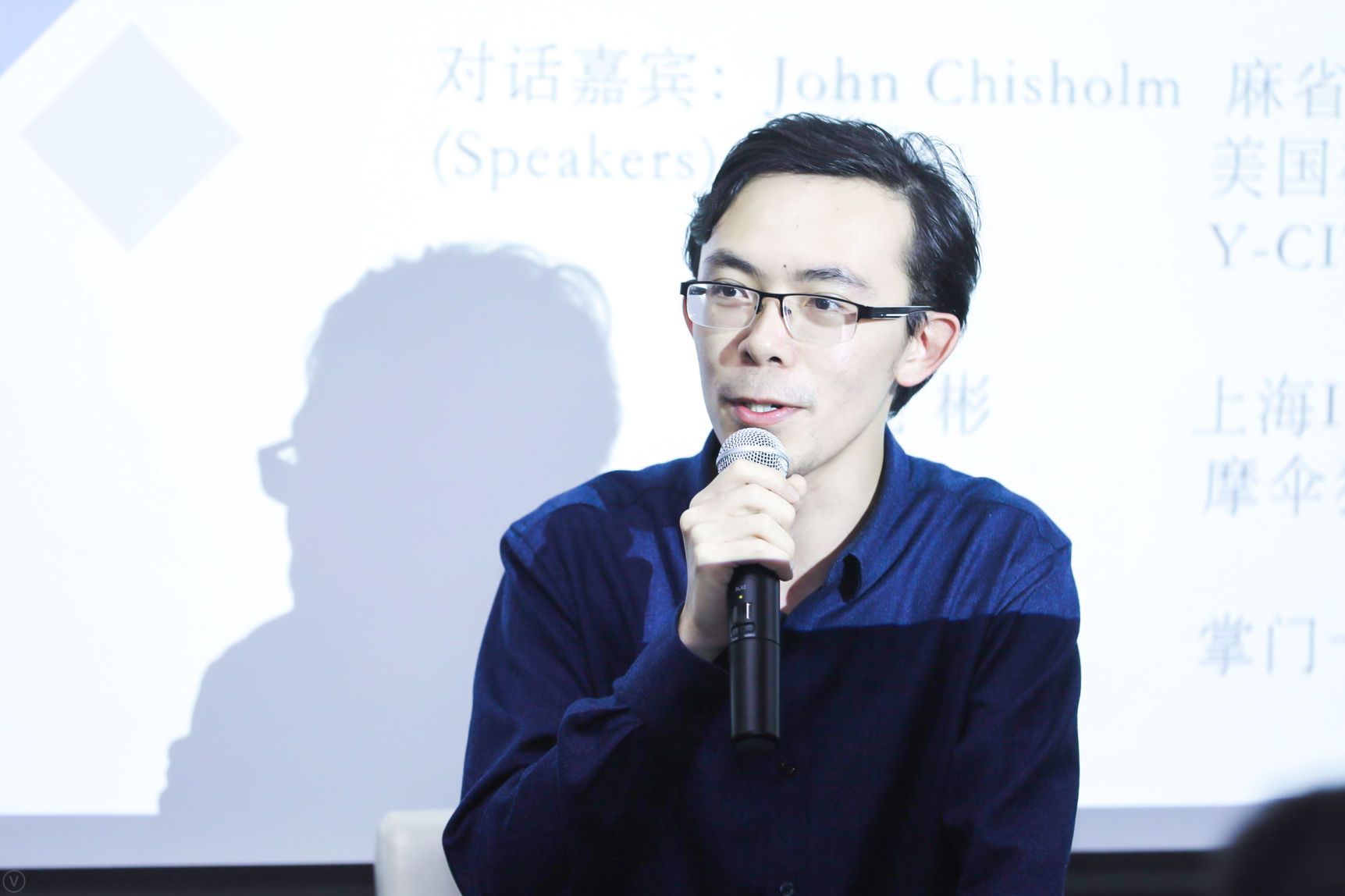
▲Zhang Yi, Founder and Chief Executive Officer of Zhangmen
Regarding talent recruitment, Zhang Yi stated that the personnel structure of an enterprise is trapezoidal, with 20% being masters, 30% average, and the remaining 50% being recent hires. Enterprises should pay more attention to high-potential talents, who can help attract more talents. Moreover, they can form a “Catfish Effect” within their workplace, arousing new thinking methods and creative ideas.
As for how to remain a successful entrepreneur during trials and tribulations, Zhang Yi held that a good entrepreneur would treat these moments of duress as the trough of their market cycle, while continuing to perform steadily and maintaining the business’s economic model. This is essential for an enterprise to keep a foothold in the entrepreneur market.